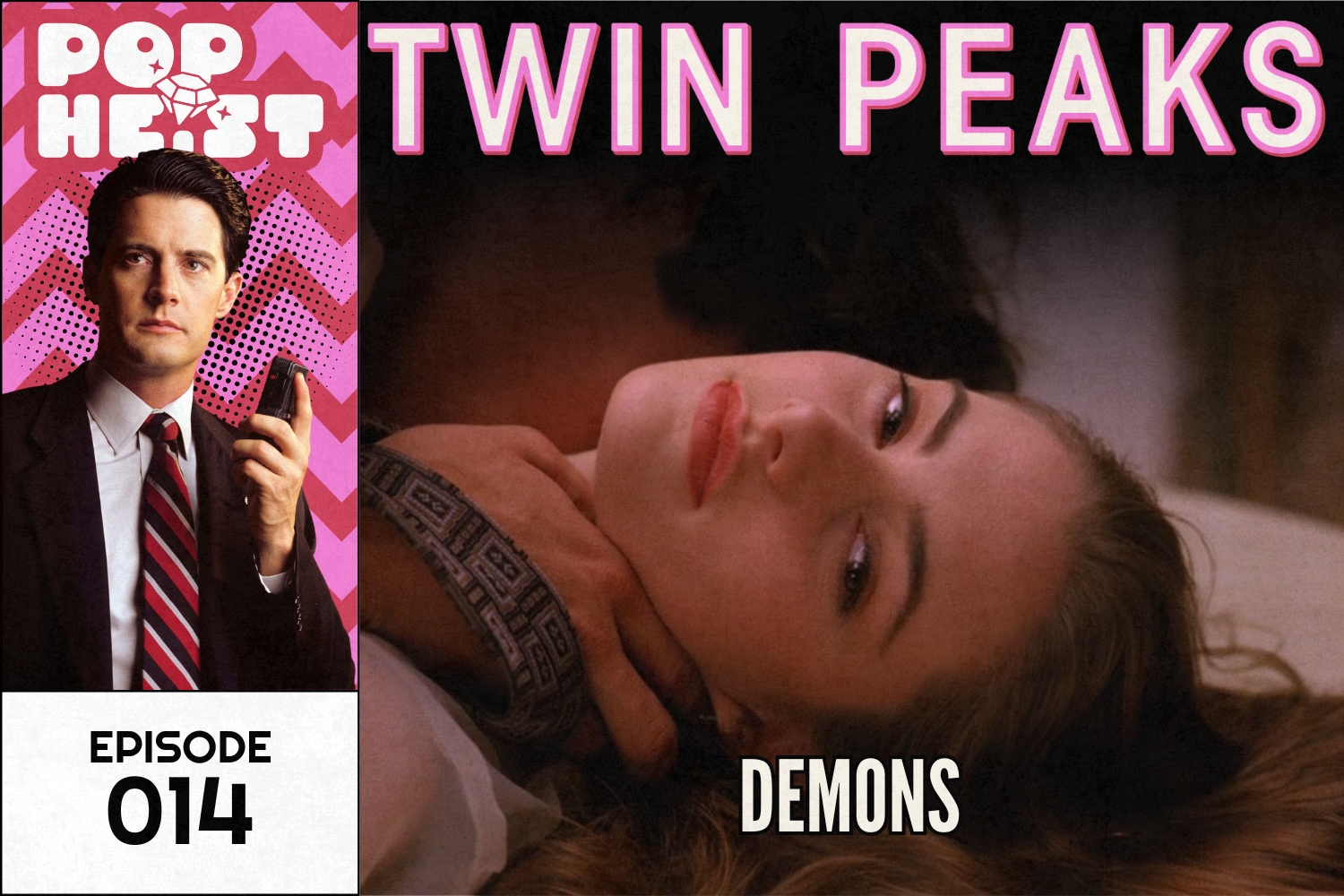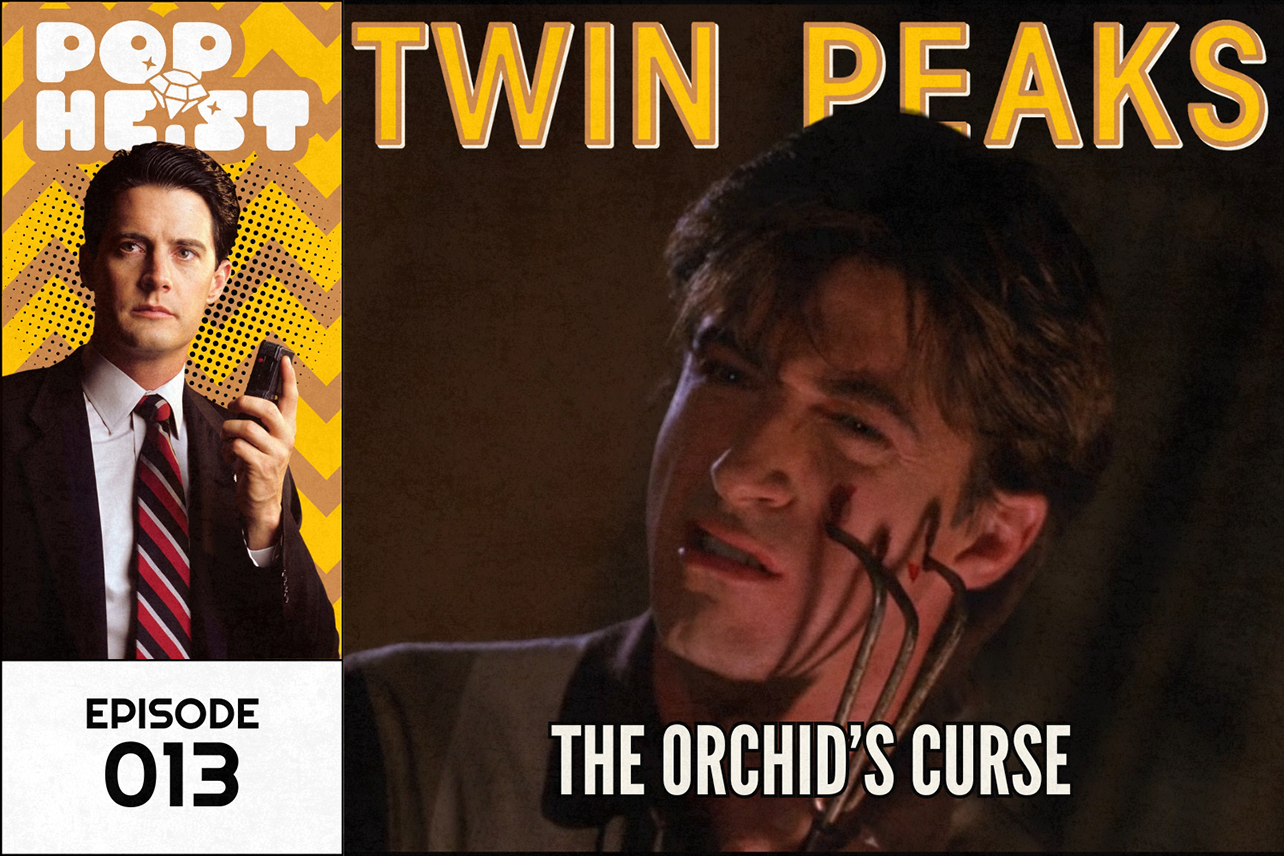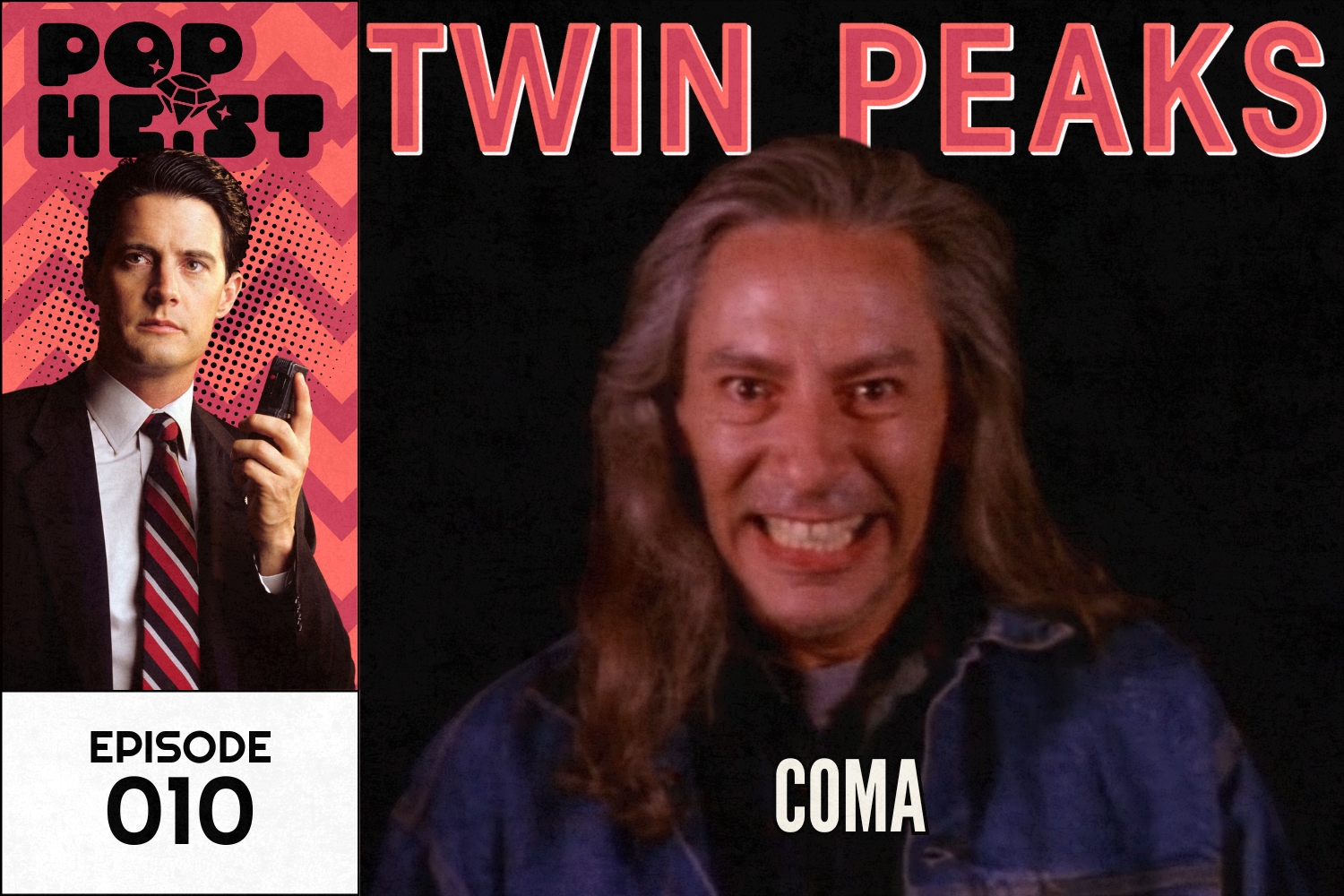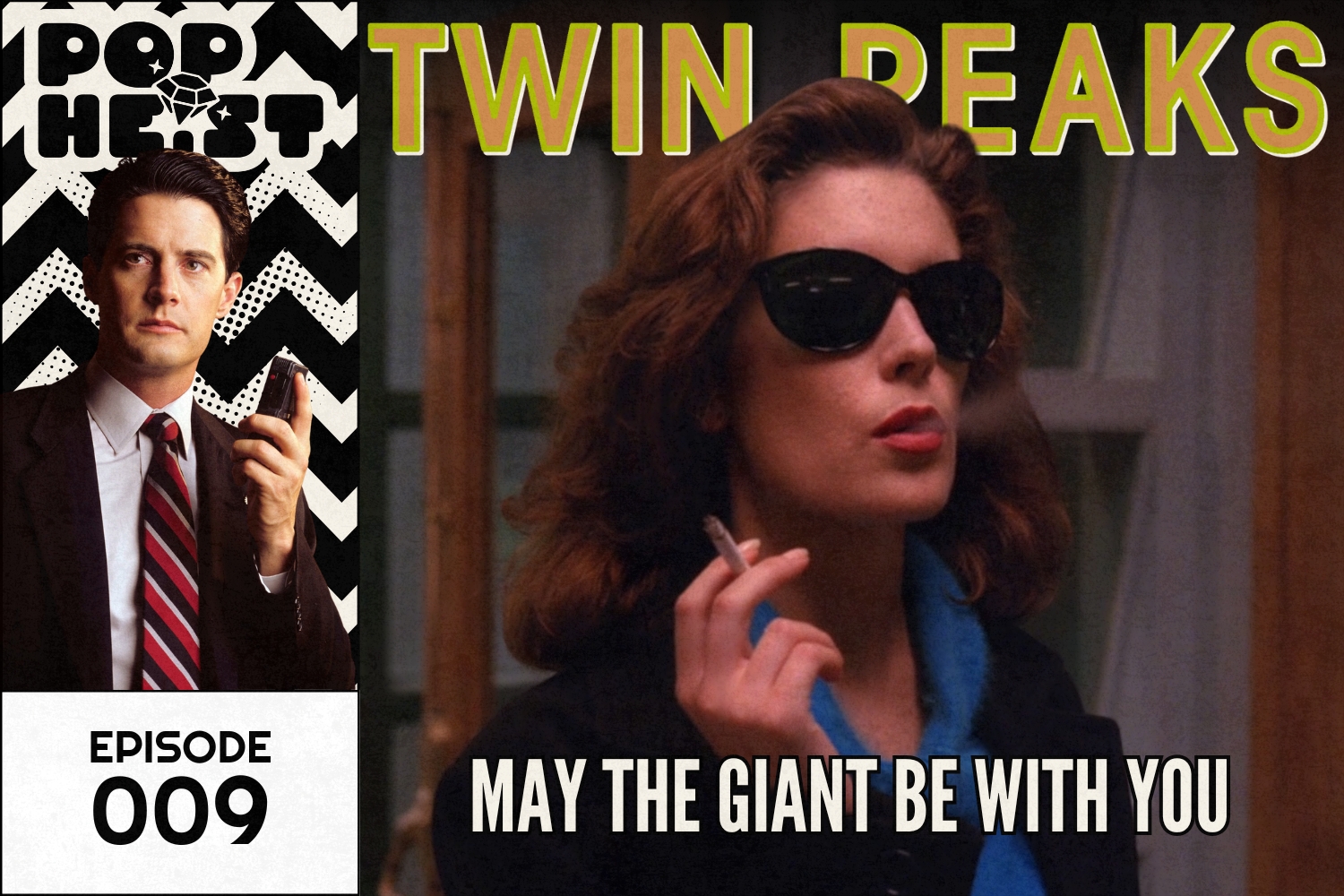In PRESTIGE PREHISTORY, Pop Heist critic Sean T. Collins takes a look at classic TV shows that paved the way for the New Golden Age of Television — challenging, self-contained stories from writers and filmmakers determined to push the medium forward by telling stories their own way.
The Prisoner Episode 8 (airdate order) / Episode 2 (AVC order)*
"Dance of the Dead"
Original Airdate: Nov.17, 1967
Writer: Anthony Skene
Director: Don Chaffey
Cast: Patrick McGoohan, Mary Morris, Duncan MacRae, Norma West, Aubrey Morris, Alan White
*NOTE: The Prisoner's proper running order is a matter of dispute; Pop Heist is using the AV Club order for the show
"Where am I?"
"In the village."
"What do you want?"
"Information."
"Whose side are you on?"
"That would be telling. We want information. Information. Information!"
"You won't get it."
"By hook or by crook, we will."
"Who are you?"
"The new Number Two."
"Who is Number One?"
"You are Number Six."
"I am not a number! I am a free man!"
To this last declaration of Number Six, the final line of the dialogue that from here on out is a standard fixture of the opening sequence of The Prisoner, the new Number Two only laughs. Everything else Number Six says to her, she dignifies with some sort of response. The idea of freedom garners only mocking dismissal without a word.
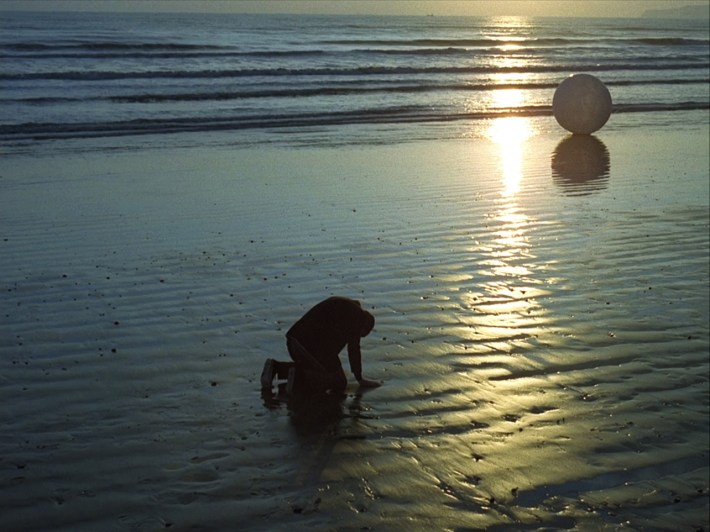
The first episode of The Prisoner, "Arrival," presents the new home of the eponymous character, the Village, as sinister for sure. But it's sinister in a way that jibes with more traditional spy/secret agent stories. Six is a spook with principles, he gets kidnapped and dumped in some kind of weird brainwashing experiment bristling with various Orwellian features, he has to figure out where he is and who brought him there and how to get out while dodging various science-fictional obstacles and the occasional half-assed honeytrap. Sixties superspies from James Bond to Maxwell Smart could well have found themselves in similar predicaments.
But remember that alarming sequence in the town square, when Number Two brings everything crashing to a screeching halt and dispatches the Orb to thwart an escape attempt? Remember that sense of surreal menace? That's the stuff in which "Dance of the Dead" traffics. It reveals that Number Six's predicament is not merely frustrating or frightening, it's fucked up.
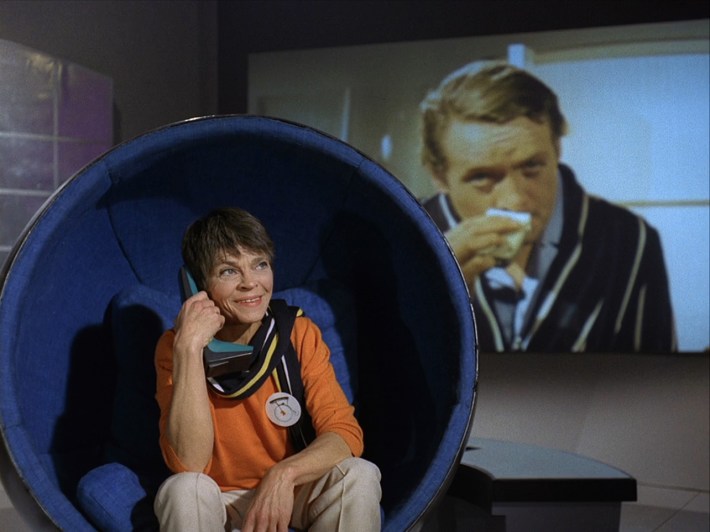
The episode begins with what feels like an important scene to remember moving forward. The new Number Two (Mary Morris), a diminutive but commanding and magnetic woman in a pixie cut, oversees a clandestine nocturnal attempt to extract the information they need from Number Six by experimenting on him in his sleep. The doctor in charge, Number 40 (Duncan MacRae), is insistent his methods can extract what they need from the prisoner's brain — but Two shuts the doctor down, insisting that this brain is far too valuable to risk destroying it with extraordinary measures.
After the experiment fails, Number Six wakes up none the wiser. However, he quickly discovers three things. First, he's been invited to the Village's big annual carnival and dance. Second, a dead body has washed ashore along the Village's lengthy beach, which he discovers after trying and failing to escape by outrunning the guardian orb until he collapses from exhaustion in the attempt.
Third…well, there's a black cat hanging around. Awww! And the cat likes Six a whole lot.
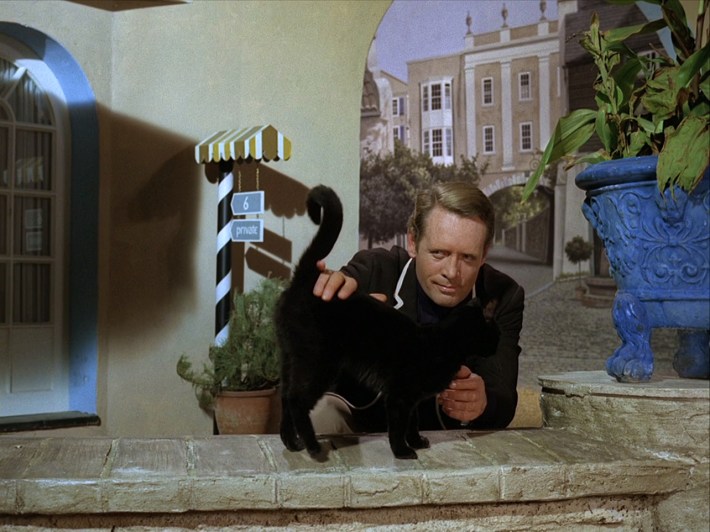
Which stands to reason, doesn't it? Two episodes in, we've learned that Six has a catlike personality, and I'm not just talking his preference for black clothing, which matches the cat's sartorial sense to a tee. Six is not just a fist on the desk, standing-athwart-history type — he's sly, playful. He's constantly saying just enough to let his would-be masters know they don't control him, and no more. When he is allowed freedom of movement within the Village's labyrinthine Town Hall, where the carnival and dance are held, he roams around from room to room, sticking his nose in things in feline fashion.
Sticking his nose in things is what almost leads to his downfall. The morning he discovers the dead man washed ashore on the beach, Six rifles through his pockets to extract anything of value, including a small radio. He then stashes some of his own personal effects in man's wallet, in an attempt to pass the waterlogged corpse off as himself, the better to escape.
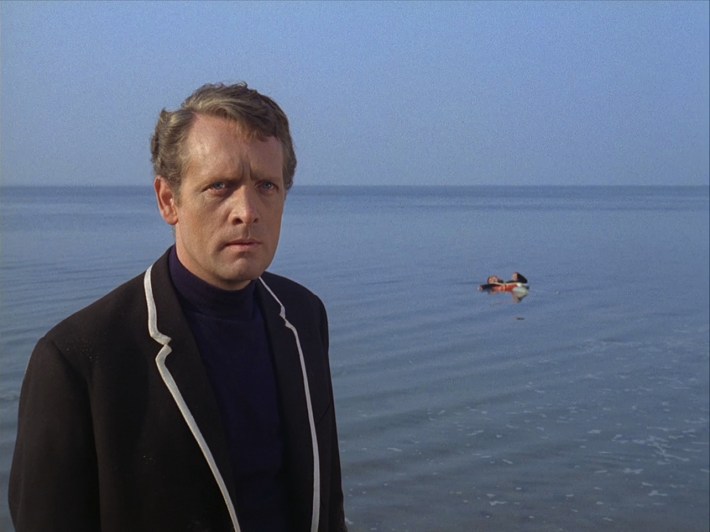
But Number Two, who dresses as Peter Pan for the carnival — appropriate for her role as the lord of a Neverland — flips the script on our boy. Using his own ruse against him, the administrators of the Village are reporting back to the outside world that the man who is now Number Six has died, using the body as evidence. Now, no one will wonder where he is. No one will come looking for him. No one will discover the Village and its masters in the attempt.
And once again, an old friend from the spy biz is present in the Village to serve as a warning about Six's eventual fate. Dutton (Alan White), aka Number 42, is not an undercover agent the way Six's buddy Cobb was last time, but a genuine victim of the Village. Since Two deems him "expendable," unlike Six, 42 is subjected to unseen but apparently hideous experiments that leave him a brainwashed automaton. When he meets up with Six on the beach, Dutton says that he's been granted a few days reprieve from the so-called "Hospital," so that he can decide on his own to tell the Village's bosses the truth. There's just one problem: He has told them the truth, the whole truth, all of it, everything — and they don't believe him.
How can Six expect any other fate for himself, even if he does submit?
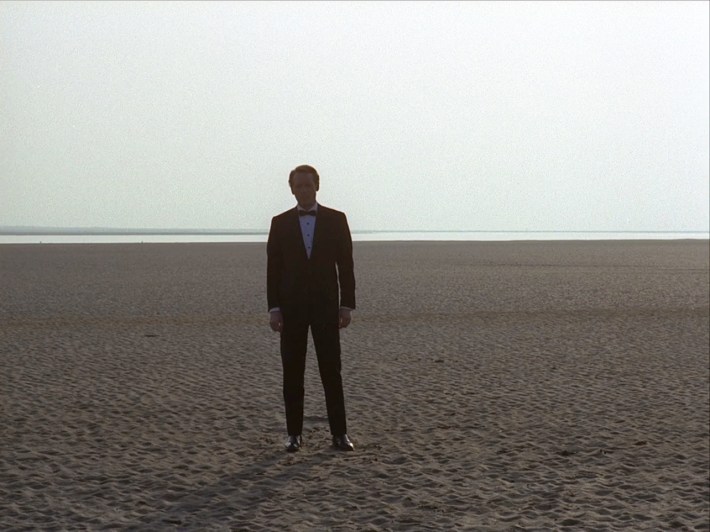
Fat chance of that, of course. Gifted with a tuxedo — everyone else is fully in costume, from historical figures to creepy clowns — Number Six attends the dance. It culminates in a kangaroo court, to try him for the crime of using the dead man's tiny transistor radio. This crime is dutifully reported and prosecuted by Six's designated Observer this episode, the beautiful blonde Number 240 (Norma West), who dresses like Little Bo Peep for the carnival and tries to have this wayward sheep punished.
She almost succeeds. A tribunal presided over by Queen Elizabeth (the maid), Napoleon (the doctor), and Caesar (the town crier, A Clockwork Orange and The Wicker Man actor Aubrey Morris) finds Six guilty of crimes against the community and sentences him to death. He flees through the town hall, pursued by shrieking Villagers in ghoulishly garish costumes.
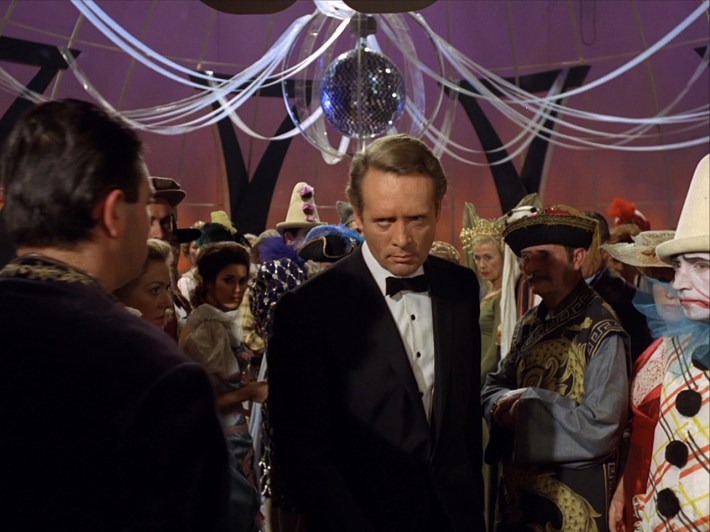
Employing a disguise of his own, that of one of the facility's many Mengele doctors, he infiltrates a room in which some kind of teletype machine apparently transmits instructions to the various Numbers Two. But despite his best efforts, he can't destroy the machine, or stop it from sending its mysterious communiqués.
Cornered by Two and 240, Six is, as always (so far anyway), defiant. "You'll never win," he tells them unequivocally.
"Then how very uncomfortable for you, old chap," replies Number Two.
You're only punishing yourself, is the message. You're only driving yourself crazy. It's so much easier to just…give in.
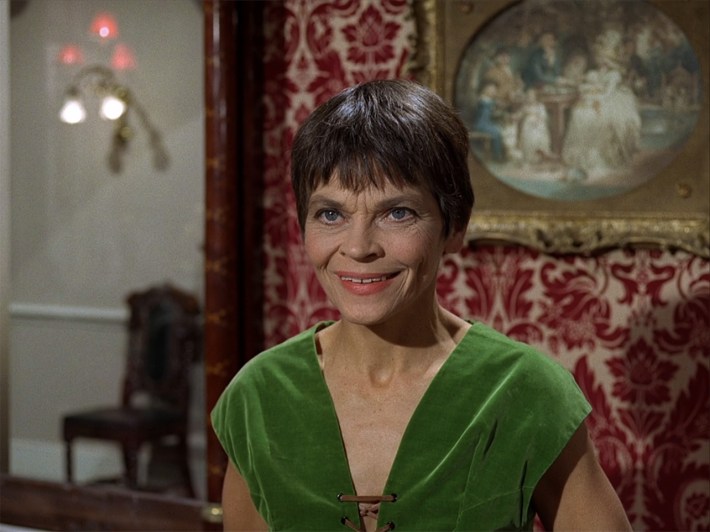
The people who are selling their soul in the face of fascism — people who've made the decision that telling our real-world Number Twos "You'll never win" is simply too uncomfortable for them, old chap — they'd feel quite at home in the Village, a place where Number Two says you can do what you want "as long as it's what the majority wants. We're democratic…in some ways." Which majority are you talking about? Which ways are you democratic again? And which ways aren't you? Ohh, don't worry. You know the ones.
Throughout his sojourn in the Village so far, Number Six is confronted with all kinds of foolishness — the penny-farthing bicycles, the childlike maids, a very cape-forward fashion scene, and so on. But the image that lingers in this episode is that of his friend Dutton, now destroyed by the Village, presented to Six at his trial dressed in a jester's motley and lobotomized into a smiling void. King for a day, fool for a lifetime. Director Don Chaffey and cinematographer Brendan J. Stafford use bold color and aggressive shot compositions to convey the intensity of this entire series of events, which builds up through the bizarre carnival and trial sequence, a visual cacophony often unnervingly accompanied by silence on the soundtrack.
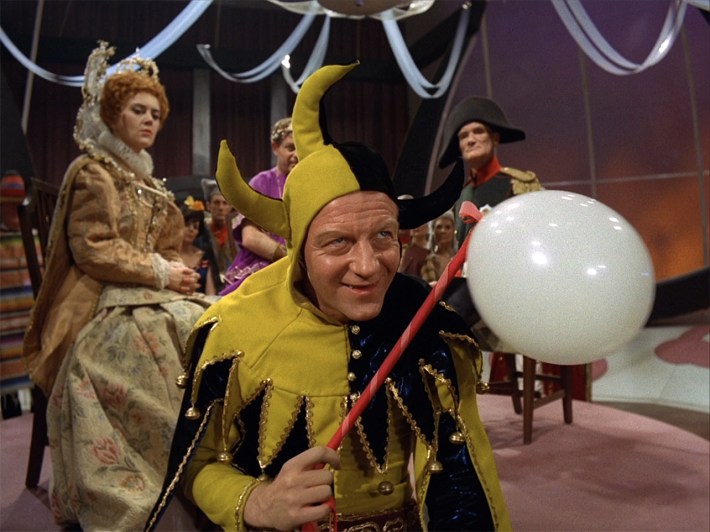
Compared to the relatively gentle entrypoint of "Arrival," "Dance of the Dead" is an abrasive watch. That's what makes it just as important to establishing the vibe of the Village as the premiere: It should be an unpleasant place. How very uncomfortable it is to witness the destruction of human lives at the diktat of untouchable overlords, whose methods, whatever they are, are wholly indistinguishable from shrieking costumed madness. How very uncomfortable for all of us, old chap.
This recap was originally accessible to paid subscribers only, and future recaps in this series are available now for paid subscribers. If you haven't already, consider supporting worker-owned media by subscribing to Pop Heist. We are ad-free and operating outside the algorithm, so all dollars go directly to paying the staff members and writers who make articles like this one possible.

